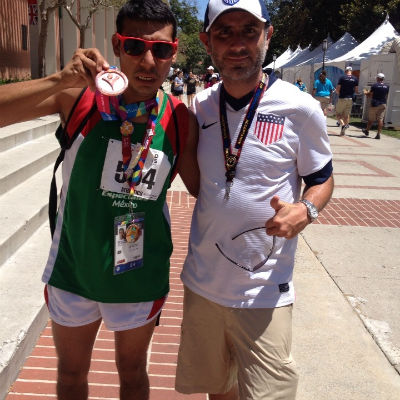 Charting the human life cycle made Gail Sheehy famous in the 1970s.
Charting the human life cycle made Gail Sheehy famous in the 1970s.By Neil Earle
 Charting the human life cycle made Gail Sheehy famous in the 1970s.
Charting the human life cycle made Gail Sheehy famous in the 1970s.Back home this summer interviewing former 1960s classmates for a projected book I am doing and answering their “where are you now?” questions made me realize something. I have been in serious pursuit of Bible-based Christianity since 1965 – that’s 50 years.
If I didn’t need anything else that reminder was good enough to hit me with the fact that I’m in what psychologist Daniel Levinson calls Late Adulthood – anything after age 65 he demarcated as the boundary of the “Late Adult Transition.”
Some people in religion scoff at social science and other allied fields but Levinson’s 1978 study The Seasons of a Man’s Life (catch the Biblical overtones in Ecclesiastes 3:1) gave the backdrop for Gail Sheehy’s influential Passages. A megahit in the 1970s and afterwards.
Fifty years is a long time and I am thankful I have kept a Christian commitment including a calling to 43 years of ministry over that period. Not by my efforts alone, I assure you. There were tons of inducements to turn back along the way but the everlasting arms of the Great God have been there at every stage of the journey. Lately I have been more attuned to what the poet Longfellow wrote when he addressed his Bowdoin College class after 50 years:
“For age is opportunity no less
Than youth itself, though in another dress,
And as the evening twilight fades away
The night is full of stars invisible by day.”
The Bible – that book I set out most earnestly to understand as a teenager in 1965 is a prime source on aging. The swift-moving mini-study includes such sparkling texts as Psalm 71:9, “Do not cast me away when I am old; do not forsake me when my strength is gone;” Psalm 92:12-14, The righteous will flourish like a palm tree…They still bear fruit in old age, they will stay fresh and green, proclaiming the Lord is upright; he is my Rock…” and Isaiah 46:4, which deserves bracketing apart:
“Listen to me O house of Jacob…you whom I have upheld since I was conceived, and have carried since your birth, even to your old age and gray hairs I am he, I am he who will sustain you. I have made you and I will carry you; I will sustain you and I will rescue you.”
Of course the most poignant attention to this whole subject of growing old in the face of God’s presence – a godly look at aging – appears in Psalm 90 which is self-advertised as a “prayer of Moses the man of God.”
It begins with an abrupt strong statement: “Lord, you have been our dwelling place throughout all generations” (Psalm 90:1. Yahweh God was Israel’s real dwelling place. Not a land, not a city, not a tabernacle which is pretty profound for Moses the leader of Israel, the main leader of a nation of exiles looking forward to an earthly Promised Land. Moses anticipates the New Testament teaching that here we have no certain city and that we are citizens of a heavenly city.
Verses 2 and 3 enunciate the truth of the majesty and endurance of the everlasting God before whom all human efforts are but dust. The first section verses 3 to 12 outline the familiar Biblical charges against all the haughtiness of humankind. “You sweep men away in the sleep of death…we finish our years with a moan…your wrath is as great as the fear that is due you.” Then this section climaxes in the main lesson of the first half: “Teach us to number our days aright that we may gain a heart of wisdom (verse 12).”
The scholar Weiser notes at this point “the poet observes that part of the nature of sin is that men hardly ever realize the ultimate relationship between mortality and sin, because they live for the moment.” How true. Few people reflect on their lives until illness sidelines them for a period. That is the “trouble and sorrow” verse 10 talks about – pain and sickness attend our journey even more as we age. Live for the moment? Was Weiser watching our latest TV programming? “I’ve got to get mine” is one of the subterranean mottos of this culture.
Yet Derek Kidner shows how much we need the unrelenting realism of this Psalm. “Perhaps nowhere outside the book of Ecclesiastes is the fact of death so resolutely faced or the fear of God so explicitly related to it.”
 Michaelangelo's Moses: Living to 120 years allowed him some unique insights into aging.
Michaelangelo's Moses: Living to 120 years allowed him some unique insights into aging.Psalm 90 is a cold splash in the face to those trying to cram in as much pleasure and self-centeredness as possible. It is a necessary corrective to the shallowness and superficiality of our times. Delivering as many funeral messages as I have these past 43 years, I must say it is not hard to make people squirm about these realities of life and death at such times but good-hearted empathetic preachers do not take that tack. Because…
Because, almost right away in verse 13 we reach a dramatic turning point, as so often happens in the Psalms. Whereas we have seen the theme head down down down now we get a bold assertion by the somewhat beaten-down author. “Relent, O Lord! How long will it be?”
Relent or repent is the same word as used in verse 3 where God turned back mankind to dust or reminded him of the Fall. Now this word sets up a stark and thrilling contrast as J.A. Motyer notes:
“Turn and return in verse 3 and relent in verse 13 all represent the same word…God will continue to bring about the death which is the consequence of sin-and only a repentant sinner, one who turns from his sin, has any hope of seeing God turn from the course of inexorable justice. But there is that hope. It is based on the covenant love of God, it looks forward to a new morning after this long day’s journey into night…And will it be in this life or the next. Either way, there is some remarkable insight here (The Message of Psalms 73-150), page 77).
Verses 13 to the end surge on zestfully in the form of seven requests to the Everlasting God about how an aging author can make the most of the time he has left.
The very first request is quite bold in contrast to what has gone before. It is a blunt and straightforward call for pity. “Have compassion on your servants.” Why not ask that? Christians remember that they are told “they have not because they ask not” (James 4:2).
Further, if the author were Moses he himself had previously promised in Deuteronomy 32:36, “The Lord will judge his people, and have compassion on his servants when he sees their strength is gone…” Actuaries can decide what happens at age 60, 70 and 80. Even the day we will die in some cases. But there are precious promises in Scripture for those in Early or Late Old Age.
A second request is for being “satisfied in the morning” which is a metaphor for “soon.” “Let us have thy mercy soon,” Adam Clarke writes in his commentary, “Let it now shine upon us and it shall seem as the morning of our days and we shall exult in thee all the days of our life.”
Clark was an early enthusiastic Methodist. But even we when we “say grace” over breakfast we can orient ourselves to the day, we can pray for people, for their arousal by the powerful Spirit of God and for health healing and protection for ourselves and for those we will meet. As St. Paul said, let us use each day of our dwindling days as a chance to advance the Kingdom and thus use it for God’s glory. Whatever you do, do it to the Lord (1 Corinthians 10:31). A fine and timeless motto wherever we are on our life’s journey.
Thirdly, is the request for JOY. The New Testament lists joy as part of the fruitage of the Holy Spirit at work within us. One pastor suffering from cancer in the 1980s said he simply had to ask God for encouragement. That was 35 years ago and he is still serving God!
Verse 15 alludes to the request for a balancing in our life’s affairs. We’ve been down so long, Lord, Moses seems to be saying, now let us have some “up time.” It’s like the contrast in Isaiah between First Isaiah where the heedless nation heads to captivity and Second Isaiah (40-66) where the nation returns to once more take up their place in the divine scheme for the nations. “We were like those who dream!”
These are truly divine antidotes to aging are they not?
 Events such as Special Olympics bring young and old together, win/win situation.
Events such as Special Olympics bring young and old together, win/win situation.“Let your wok appear to your servants” is the way verse 16 reads in the King James and that is a good message. We know by faith God is always working (Romans 8:18). But Adam Clark adds “Let us now see in our deliverance that thy thoughts towards us were mercy and love.”
Request six is for the next generation. Our youth need to get in on this throbbing and surging explosion of confidence by the older among them. Often a good example of older people interested in life – in their lives – counts for everything. “Here is a heritage for our children in a transitory world,” writes Derek Kidner. “To stay young be around young people” is a well-known adage. I will never forget the small part I played in advertising the Special Olympics of 2015 when 80 South African youth showed up in my hometown of Duarte. Unforgettable. Young people and older people are natural allies, because young people can see we want nothing from them. Especially when we are out to build them up. That is why I semi-jokingly say, the kids who work at Starbucks are a part of my mission field. I try to cheer them up.
The escape from futility is asked for last: let God bless what we are doing in meaningful work through our brief existence. “Give us success” Moses is asking here. And why not? If we have been dedicated to God’s work by his own gracious call to serve extended to us (John 15:1-5) then we can rightfully ask that. Clark notes how this psalm concludes with prayer as all good Christian endeavor does.
The magnificent seven. This is why the Old Testament scholar Walter Breugemann has concluded that Psalm 90 is not a treatise on human futility. No. It is a call to see God always at work in the midst of what looks like our human frailty and futility.
50 years I have spent on my own personal search for God in scripture. While he has found me more than I can say I have found him, it has been a thrilling and exciting journey. God knows all. God sees all. In him is life and his life is the Light of men.